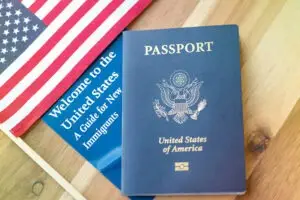 The focus of this article is negative consequences for Dreamers or DACA beneficiaries that can result from a criminal conviction. Specifically, this blog is intended to provide basic information about how a criminal conviction of Driving Under the Influence (DUI) affects eligibility for Deferred Action for Childhood Arrivals.
The focus of this article is negative consequences for Dreamers or DACA beneficiaries that can result from a criminal conviction. Specifically, this blog is intended to provide basic information about how a criminal conviction of Driving Under the Influence (DUI) affects eligibility for Deferred Action for Childhood Arrivals.
What is DACA?
Deferred Action for Childhood Arrivals (DACA) is a form of relief from deportation for immigrants who came to the United States as children.
DACA and Criminal Convictions
To qualify for Deferred Action a person must not have been convicted of a felony, a significant misdemeanor, or three or more non-significant misdemeanors, and not pose a threat to public safety or national security. A criminal conviction, therefore, may be a bar to eligibility for DACA.
What is a “Significant Misdemeanor?”
A “Significant Misdemeanor” – an immigration standard created in consideration of DACA – is a misdemeanor as defined by federal law. Specifically:
1. it is one for which the maximum term of imprisonment authorized is one year or less but greater than five days; or
2. Regardless of the sentence imposed, is an offense of domestic violence; sexual abuse or exploitation; burglary; unlawful possession or use of a firearm; drug distribution or trafficking; or, Driving Under the Influence (DUI); or
3. If not an offense listed above, is one for which the individual was sentenced to time in custody of more than 90 days. The sentence must involve time to be served in custody, and therefore does not include a suspended sentence.
Driving Under the Influence (DUI)
For a free legal consultation , call 253-627-4696
As seen above, Driving Under the influence (DUI) is expressly defined by immigration as a Significant Misdemeanor. A conviction for DUI will therefore act as a bar to eligibility to receive or renew DACA. DACA beneficiaries who are charged with DUI but ultimately plead guilty to a lesser criminal offense such as reckless or negligent driving may be able to preserve their DACA eligibility. However, if they are sentenced to time in custody of 90 days or more (not including any suspended sentence) the conviction will still be considered a conviction for a Significant Misdemeanor. Additionally, an individual who has been convicted of three or more non-significant Misdemeanors will be barred from applying to receive or renew deferred action. For purposes of DUI, that means even a plea to a non-significant misdemeanor such as Reckless or Negligent Driving could lead to DACA ineligibility if they have prior criminal convictions.
Will an arrest or charge of Driving Under the Influence (DUI) cause me to lose DACA?
For individuals in the United States that have applied for DACA, or are eligible to apply or DACA, an arrest or criminal charge for DUI places their DACA eligibility in jeopardy. Even simply being arrested and charged with DUI can cause problems for DACA beneficiaries by delaying the processing of initial and renewal DACA applications while the case is pending and before a disposition in the case has been reached. USCIS may be unable to complete processing of DACA applications until after a DUI charge has been adjudicated.
I am a DACA Beneficiary – what should I do if I get arrested for DUI?
Anyone who is arrested and charged with DUI should consult with an experienced criminal defense attorney as soon as possible. This is especially true for individuals who are Non-U.S. Citizens and even more true for DACA beneficiaries and individuals eligible for DACA. DUI is classified as a gross misdemeanor in Washington State and as such carries a maximum penalty of 364 days in jail and a $5,000.00 fine. Conviction of DUI in Washington State also carries mandatory minimum penalties. A conviction for DUI will lead to ineligibility for individuals seeking to apply for or renew DACA. An experienced criminal defense attorney may be able to help avoid a conviction for DUI.
Finally, because a conviction for reckless driving or negligent driving can also lead to DACA ineligibility, consulting with zan attorney who has experience with Washington State law and U.S. Immigration law can help ensure that does not happen.
Click to contact our criminal defense lawyers today 253-627-4696



